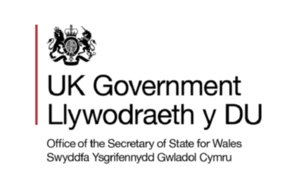Welsh language programming set to benefit from a multi-million pound boost from the UK Government

£60 million competition to find the next Peppa Pig, Fireman Sam and Balamory
Millions of pounds of additional funding will be injected into Welsh language programming as part of a UK Government boost for the independent broadcast sector, it has been announced today (19 October) by the Secretary of State for Digital, Culture, Media and Sport Jeremy Wright.
A share of the fund which aims to halt the decline of UK produced children’s content will be used to commission Welsh language programming and content, stimulating the creation of dynamic and distinctive Welsh language productions from the independent sector.
The UK Government investment will be used to reverse the growing trend of airing repeats and facilitate the creation of Welsh language programmes that can repeat the success of all-time favourites such as Fireman Sam. It will also include:
- A multi-million pound boost for commercial radio; and
- A special fund to help fledgling production companies develop and pitch their original ideas to make them a reality
The Contestable Fund recognises the significance that Welsh language productions have had on the cultural and social life of Wales, which is why the Department for Digital, Media, Culture and Sport has aimed to allocate 5% of the available budget to Welsh and other indigenous UK languages.
The Secretary of State for Wales, Alun Cairns said:
This funding announcement will provide a significant boost to Welsh language programme creators, helping to secure a whole new generation of young Welsh language programme viewers.
With this UK Government investment, the thriving Welsh language broadcast sector will be able to build on its success and create distinctive, captivating programmes that will educate and entertain the growing number of Welsh language speakers in the country.
Production levels of new children’s content have declined over the past decade, with public service broadcasters spending roughly 40% less than they did in 2006. As a result a significant amount of children’s programming on children’s channels now consist of repeats.
Minister for Digital Margot James said:
Young people in the UK deserve high quality content that entertains, informs and reflects their experiences growing up across the country today.
The UK broadcasting and production sectors are world renowned, and a success story to be proud of. This innovative project is an instrumental part of our support for the UK’s vibrant media sector and will help it continue to go from strength to strength.
In 2016, 98% of children’s content on commercial children’s channels and 91% on public service broadcasters were repeats. To directly combat this decline in content for younger people in the UK, £57 million will be invested in to a Young Audiences Content Fund, administered by the BFI. This will focus on funding a new influx of creative and distinctive content that represent UK children and teenagers today. Five per cent of the Young Audiences fund will support production companies develop their ideas.
Ben Roberts, Director of Lottery Film Fund, BFI said:
We’re excited to be working with Government to deliver the new Young Audiences Content Fund to help support UK companies to create exciting and distinctive new programmes for young people. It goes hand-in-hand with the BFI’s own mission to connect audiences with the widest possible range of content. We look forward to making the most of this new opportunity to back talent to create bold and original programming and expand the choices available for young people.
Also announced today as part of the Contestable Fund is a £3m Audio Content Fund which will encourage greater innovation and experimentation in the commercial radio sector.
Currently, examples of public service content (aside from national and local news) on commercial radio are rare due to commercial pressures. By removing the necessity for commercial stations and producers to seek as much sponsorship and advertising revenue, the fund will provide significant support to radio producers to try something different, particularly with new voices who do not have an established relationship with broadcasters and therefore access to funding.
Siobhan Kenny, Chief Executive at Radiocentre, said:
Commercial radio stations are always looking at new ways to serve their listeners, but sometimes the financial reality makes it difficult to do everything they would like. The Audio Content Fund has the potential to provide a significant boost in public service content for audiences, as well as a great opportunity for commercial radio broadcasters to broaden the range of output they provide.
Further guidance, including how to apply to both of the funds, will be published by the fund administrators in the new year. The pilot will then be open for applications in April 2019.
Published 22 October 2018











Responses